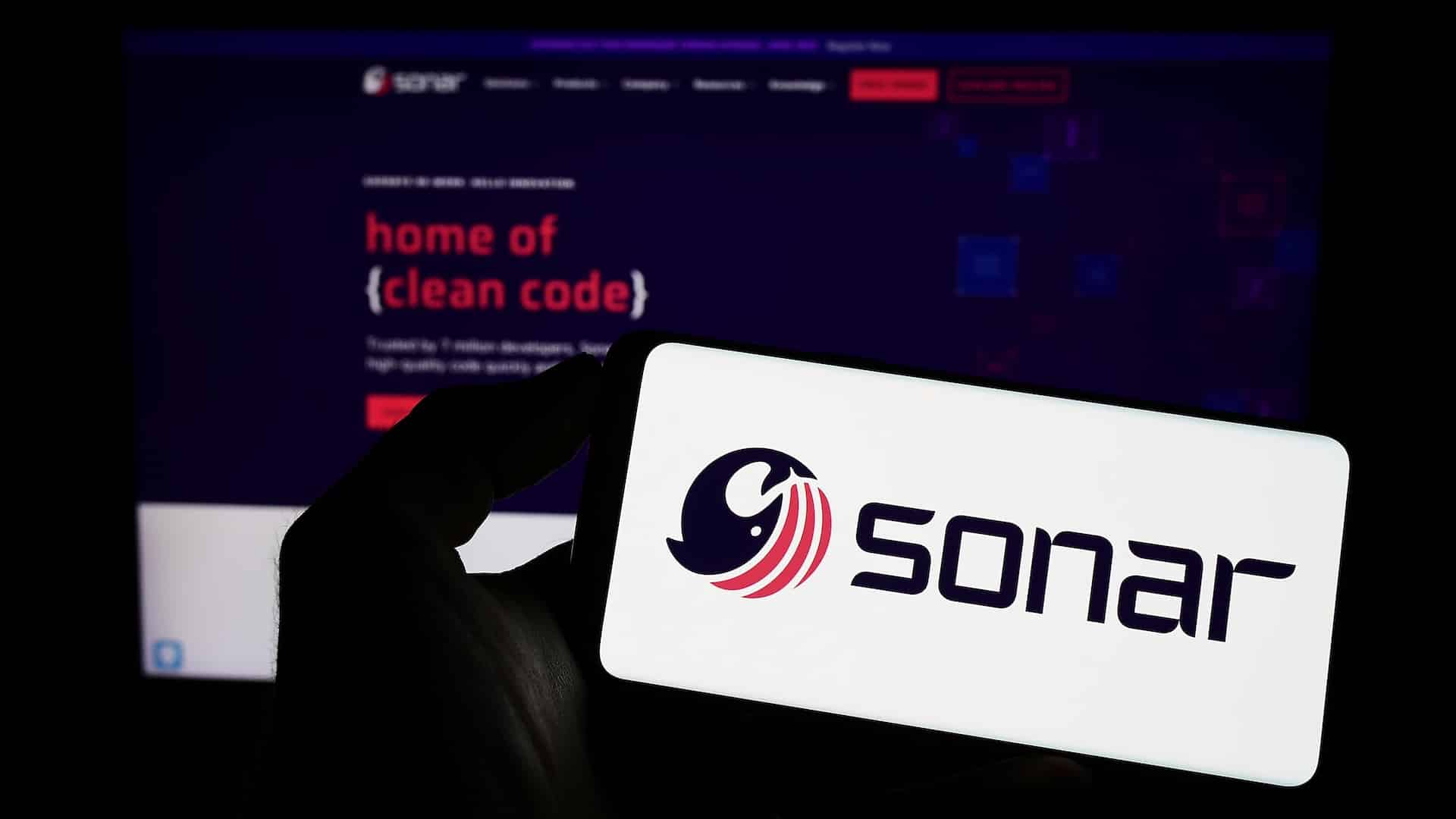For the development of your enterprise software, are you wondering which programming language to prioritize? We help you choose in this article.
Programming Language: Definition
As the name suggests, a programming language is a real means of communication between a programmer and a computer. It is a language in its own right, consisting of an alphabet, vocabulary, grammar rules… And for everything to be well ingested by the machine (the computer), the programming language also has its own translation environment.
The functioning of a programming language relies on an automatic translator: a compiler or an interpreter. A compiler transforms the source code written in a given language into target code directly readable by the computer, while an interpreter performs this translation dynamically.
The first programming languages appeared in the 1950s with the development of the first computers. Since then, many programming concepts have evolved and been enriched over time.
List of the Most Used Programming Languages
Depending on applications and domains, the languages change! But some are more popular than others among software development industry programmers. Here are some of the most commonly used programming languages today:
Java
Known for its portability and robustness, Java is used in the development of enterprise applications, Android software, web services, and other software solutions.
Python
Renowned for its readability and versatility, Python is widely used in various fields such as web development, data analysis, artificial intelligence, machine learning, etc.
C# (C Sharp)
Mainly used with the Microsoft .NET platform, C# is appreciated for the development of Windows applications, video games, web applications, and mobile applications.
C/C++
These languages are used for the development of system software, embedded software, video games, graphic applications, and other solutions requiring high performance.
JavaScript
Mainly used for web development, JavaScript is a client-side scripting language that allows adding interactivity to websites and performing dynamic client-side operations.
PHP
Mainly used for server-side web development, PHP is widely used for creating dynamic websites and content management systems (CMS) such as WordPress.
These languages represent a selection of the most used languages, but there are many other languages that are also widely used depending on the specific needs and requirements of each project or domain.
What is the Easiest Programming Language?
Python
Python is considered easy to learn for several reasons:
- Clear and concise syntax: Python’s syntax is designed to be readable and intuitive, making the code easier to understand for beginners.
- Easy to read and write: Python’s control structures, such as loops and conditions, are simple to implement and understand, which makes programming easier.
- Versatility: Python is used in a variety of fields, including web development, data analysis, artificial intelligence, scientific applications, etc., making it a versatile language for beginners who can explore different areas with a single language.
- Abundance of learning resources: There are many free and paid learning resources for Python, such as online tutorials, books, videos, and online courses, making it easier for beginners to learn.
- Active community: Python has a very active and welcoming community, where beginners can find support, ask questions, and share their experiences.
- Large ecosystem of libraries: Python has a vast ecosystem of libraries and frameworks that simplify the development of various types of applications, allowing beginners to explore and experiment with advanced features.
In summary, Python is easy to learn because of its clear syntax, versatility, abundant learning resources, active community, and extensive library ecosystem, making it an excellent choice for programming beginners.
Go
Go (or Golang) is considered easy to learn for several reasons:
- Simple and concise syntax: Go’s syntax is designed to be simple and readable, which facilitates code understanding for beginners. Basic concepts are intuitive, and the language avoids the complex constructions present in other languages.
- Few keywords: Go has a limited number of keywords, making it more accessible for learning. Beginners do not have to memorize a multitude of complicated keywords as in some other languages.
- Complete documentation: Go has comprehensive and well-structured documentation that facilitates learning and understanding the language’s features. Beginners can find accurate information and practical examples to help them progress.
- Ease of reading code: Go encourages good coding practices, making the code more readable and maintainable. Beginners can easily understand and follow the logical flow of code written in Go.
- Fast compilation: Go is a compiled language with fast compilation times, allowing beginners to see the results of their code quickly and test different approaches without losing much time.
- Active community and support: Go benefits from an active and welcoming community, where beginners can find support, discussion forums, tutorials, and learning resources to help them on their learning journey.
In summary, Go is considered easy to learn due to its simple syntax, comprehensive documentation, ease of reading code, fast compilation, abstraction from low-level details, and active community. It is an attractive choice for programming beginners. However, pointer management remains one of the difficulties of this language.
These languages are generally considered accessible to beginners due to their clear syntax, ease of use, and usefulness in various development fields. Each of these languages offers unique advantages that can suit different types of projects and learning preferences.
Who to Contact for Software Development?
For software development, it is recommended to contact a team of software development specialists. Here are some options for finding a competent team for your project:
- Software development companies: Many companies specializing in software development offer custom services to meet the specific needs of clients.
- Web and mobile development agencies: If you need a standard website or a mobile application, you can contact agencies specializing in web and mobile development.
- Freelancers and independent consultants: You can also hire freelancers or independent consultants who have expertise in software development.
- Internal collaborators: If you already have an internal team of developers, you can assign them the development of the software. Make sure they have the necessary skills and resources to successfully complete the project.
- Professional networks: You can use your professional networks to get recommendations or references to reliable and experienced software development teams.
Before choosing a development team, make sure to check the experience, technical skills, client references, and portfolio of previous projects of the team.

How Much Does Software Development Cost?
The cost of developing software can vary significantly depending on several factors: the complexity of the software, required features, target platform, the size of the development team, customization, the location of the development team…
Here are some elements to consider when estimating the cost of software development:
- Complexity and features: Simple software with basic features will cost less to develop than complex software with advanced features, database integrations, sophisticated user interfaces, etc.
- Size of the team and expertise: The cost of development will also depend on the size and expertise of the development team. Larger, more experienced teams may charge higher rates, but they can also deliver better quality work and faster turnaround times.
- Location of the team: Costs may vary depending on the location of the development team.
- Customization and integrations: If the software requires customized features or integrations with other systems, this can increase development costs.
- Maintenance and support: In addition to the initial development cost, ongoing maintenance costs, updates, technical support, etc., should also be considered.
- Hosting: The solution needs to be hosted on servers to make it available. Cloud solutions offer pricing based on usage and can help reduce maintenance costs.
It is advisable to request different quotes from software development specialists. You can discuss your needs in detail: your functional and technical requirements, your budget, and your deadlines. The cost of development can vary significantly from one project to another, so it is important to evaluate each project individually.
Qim info supports you in the development of your software
Flexible and adaptable, with over 120 clients across various sectors, Qim info is your trusted IT service provider! Qim info stands out for its ability to understand the specific needs of each client, and helps you find the missing piece for your project.
Our services are numerous and specific – technical support, infrastructure management, cybersecurity, data management, Cloud solutions, IT consulting, project management… And in our Centre of Expertise, a team of software development specialists is here to help you produce custom software or an application for your business.







